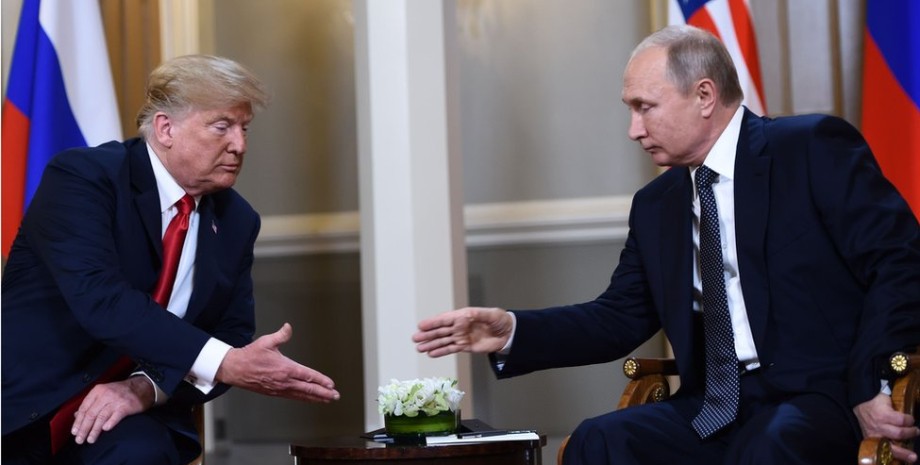
 By Natali Moss
By Natali Moss
This opportunity causes not only fears, but also strategic reflections on the future of the EU role in global policy. It's no secret that European leaders seek to be sure of their role in future peace talks against Ukraine. However, there is a risk that their impact will be minimized, especially against the background of possible bilateral agreements between the newly elected US President Donald Trump and Russian President Vladimir Putin. About it writes Euractiv.
After three years of war in Ukraine and on the eve of Trump's inauguration, European diplomats fear that future negotiations can take place without taking into account their interests. The EU, as one of the main donors and partners of Ukraine, insists on its key role. But Trump's position, aimed at the rapid end of the war, casts doubt on Europe's involvement in forming a peace agreement.
Meanwhile, Ukraine seeks to strengthen its position in the battlefield before the new US administration has joined. President Volodymyr Zelenskyy is still eliminating the possibility of rapid peace agreements and insists on NATO security guarantees. Trump instead signaled the readiness to take the initiative, but the statements about "peace in 24 hours" have already been transformed in a more realistic time - up to six months.
His team is preparing for active diplomatic steps, but the format of negotiations and the composition of participants remains uncertain. EU leaders, including France, Germany and Poland, seek to avoid a limited format such as Minsk agreements, which may exclude them from key decisions. Some countries, like Hungary, have already demonstrated conflicting approaches, which complicates the common position of the EU.
Italy Prime Minister Georgia Meloni believes that the United States will not refuse to support Ukraine, but emphasizes the need to create a strong European coalition. Poland, as an EU rotary head, can play a leading role in the next six months. European diplomats point out that it is important not only to be present at the negotiation table, but also to have a clear understanding of goals. The lack of unity and plan can weaken the EU position and lead to results less favorable to Ukraine.
It is reported that Europe should insist on a common Western strategy that will include Ukraine as an equal partner to avoid antagonism between the US, EU and Ukraine against the background of a difficult geopolitical situation. Political scientist Oleg Posternak believes that there are risks - Trump can build a policy of Eastern Europe by simplifying the dialogue with Putin.
Ukraine risks staying out of key agreements, especially if the Russian dictator insists on peaceful agreements that do not take into account the interests of Kiev. "This is quite possible. Trump has internal beliefs that have formed through his election promises, outlook in the context of large geopolitics and experience in relationships, including Putin.
Therefore, there is a risk that he will be more comfortable to achieve a rapid understanding with Putin, perhaps even without even without Participation of the Ukrainian side or at its expense, ”says focus Posterak. However, there is another scenario: Trump can be more profitable to attract Ukraine as a pressure lever on Russia. In this case, the Ukrainian side will not only participate in the negotiations, but also become a key element in providing pressure on Moscow.
But it will depend on Putin's behavior and his willingness to compromise. However, another question arises: can a direct dialogue between Trump and Putin be useful for Ukraine? According to the political scientist, it depends on how Trump will formulate his goals. To negotiate with Putin is not a disaster or a problem. The leader of the world's largest economy and the military dictator sit at the negotiation table is a real geopolitics.
"The US is profitable to have a direct dialogue with Putin, and this is exactly what Moscow has sought all years since 2014. Putin has repeatedly stated that the" Ukrainian question "could be resolved in dialogue with Washington. But I don't think Trump It simply ignores Ukraine's interests. But to leave Europeans outside these negotiations, Trump may well. The newly elected US President has complex relations with EU leadership, the European Commission and the European Council.
According to the political scientist, he is negative about some European leaders. In addition, there is fears that Trump can make new duties on EU countries, which exacerbates economic risks for Europe. Trump also demanded an increase in EU defense costs to 5% of GDP and a decrease in the presence of US troops in the European territory. This creates serious security challenges for the European Union. "Ukraine seeks to integrate into the EU.
If Europe finds itself outside the negotiation zone, it will be negative in Ukraine. It is not Biden's policy that has tried to coordinate positions with other countries under G7 or G20. Trump strategy may be more straightforward and it will act on your own discretion, ”says Posternak. It is a challenge for the European Union that previously developed the concept of the European Army or the Security System, but did not bring these projects to the end.
For the EU, the expert believes, it is a lesson and an incentive for further subjectivity in defense and safety. Recall that Florida Congressman Mike Voltz, whom Donald Trump sees as his national security advisor, made a statement according to which, meetings between Trump and Putin have already begun. Earlier, Focus disassembled the main differences in the approaches of Trump and Zelensky after the war in Ukraine.










All rights reserved IN-Ukraine.info - 2022